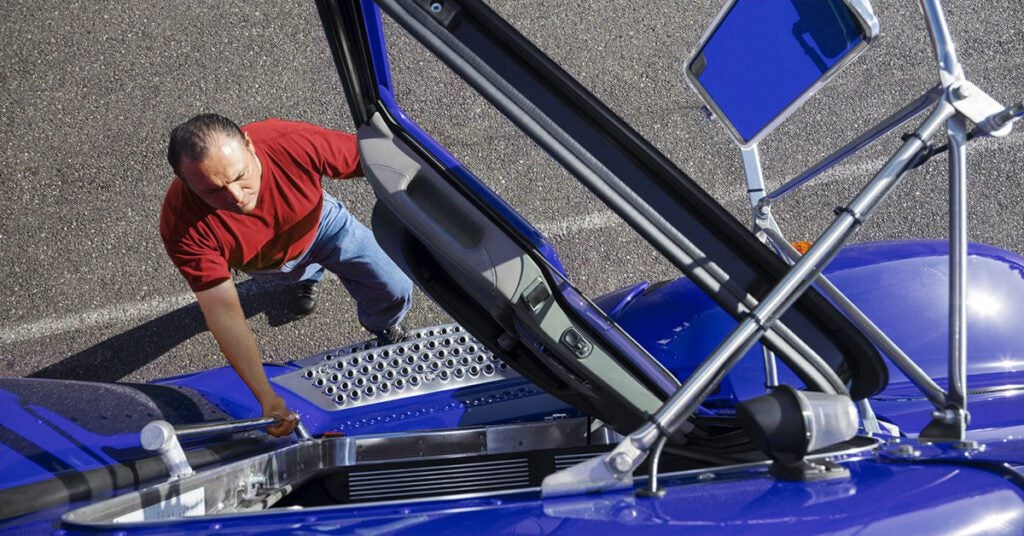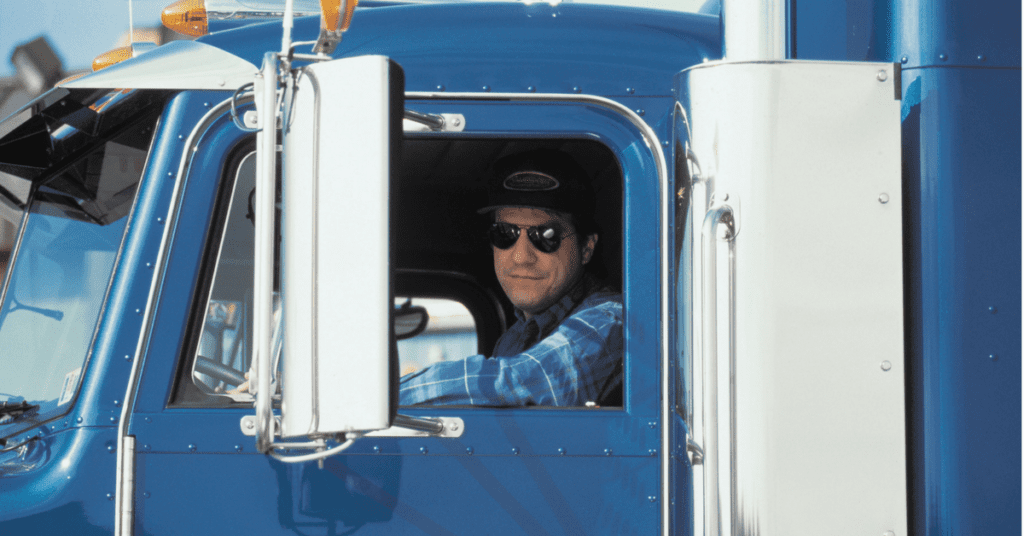Last month, San Bernardino County Superior Court fined an Ontario, CA trucking company $300,000 after a California Air Resources Board (CARB) investigation revealed that the carrier failed to upgrade 32 Transport Refrigeration Units (TRUs) with cleaner-burning, 2002-model-year or newer diesel engines.
The case against Foster Enterprises is the first court-imposed fine issued under CARB’s TRU regulation. The company owners will pay $200,000 and the balance of the fine will be stayed, as long as they comply with terms in the judgment and update their fleet as required.
In a statement, CARB enforcement chief Jim Ryden warned that “all business owners should pay attention to this case.” He explained that Foster Enterprises had to pay twice: once to comply with the law, and then again as a penalty. “Had the owners complied originally,” he said, “they would have saved us and themselves significant time and money.”
 |
| Photo by Mark Boster, for the Los Angeles Times |
Carriers take note: New CARB regulations took effect on January 1. If your fleet operates in California, you may be affected.
Among the new rules:
Low-rolling resistance tires: 53-foot or longer “box” trailers, including vans and reefers, as well as heavy-duty tractors with engines from the 2010 model year or earlier, must use low-rolling resistance tires. Carriers can continue to use their current tires as long as the tread holds out, or until January 1, 2015, whichever comes first. From then on, all tractors and box trailers must have LRRs.
Aerodynamic devices: Older, heavy-duty tractors and 53-foot “box” trailers must also be retrofitted with SmartWay-verified aerodynamic equipment such as side skirts and fairings. This program has been phased in, first for large fleets and now for fleets with 20 or fewer trailers. California carriers must register their trailers with CARB. Fleets that do not comply may face fines of $1,000 per day, and up to $10,000 per day for serious violations.

CARB rules for reducing greenhouse gas (GHG) emissions may require fairings and other aerodynamic devices on 53-foot “box” van and reefer trailers. (Photo provided courtesy of Freight Wing)
Shipper/broker responsibility: Shippers and brokers share in the compliance responsibility and can be held accountable for hiring non-compliant vehicles in California. As of January 1, they must provide carriers with contact information: receiver/consignee company name, full address and a contact name with a phone number. If the truck is stopped by California law enforcement, the driver may be required to produce contact information for the shipper, broker or freight forwarder. If you’re an out-of-state carrier, ask your customer to provide this information for any California-bound hauls.
Out-of-state shippers and brokers: Compliance for reefer units is the responsibility of the broker or shipper, as well as the carrier, even if none of the parties is registered in California or maintains a facility there. In the case of GHG regulations (LRR tires and fairings, for example), out-of-state brokers and shippers are not held accountable for non-compliance of the trucks they hire.
Out-of-state carriers: No matter where your vehicles are registered and domiciled, they must comply with CARB regulations when they travel within California.
Driver responsibility: Drivers are prohibited from operating reefers on California highways that do not comply with CARB’s TRU ATCM in-use performance standards.
Contract language: Freight contracts can expressly require compliance with CARB regulations.
Online verification: Carrier CARB compliance can be checked here using CARB’s online registration system.
While these are the most significant rules to take effect in 2013, they aren’t the only ones. If you operate in California, review the regulations to ensure that you’re in full compliance. Remember, CARB contends that fines can be levied against carriers, freight brokers, freight forwarders, 3PLs, shippers and receivers no matter where they are located, if the shipment they are moving travels on California highways. Like the man from CARB says, “pay attention.”
How has CARB compliance affected you? How have your operations been affected by CARB compliance? Let us know in the comments below.


